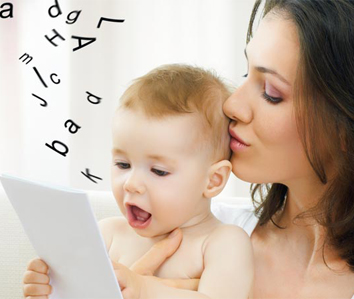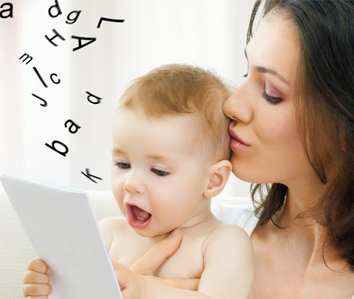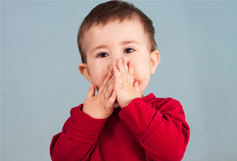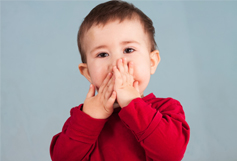Beware of Pneumonia?
Pneumonia is a leading cause of hospitalization in both children and adults in the United Arab Emirates. It is a major cause of death among all age groups and is the 4th leading cause of death in the world.
1) What is pneumonia?
Pneumonia is a common lung infection caused by bacteria, a virus or fungi.
The infection causes inflammation of the lungs' air sacs, leading to collection of
fluid or pus there.
2) What are the symptoms?
The symptoms of pneumonia can range from mild to severe, and include cough with phlegm, fever, chills, breathing difficulty and chest pain. With pneumonia, you may cough up phlegm that is yellow, green, or sometimes bloody.
3) What are the risk factors?
The people most at risk to develop pneumonia are:
- Infants and young children
- Adults 65 or older
- Pregnant women
- People taking medications that suppress the immune system
- People with diseases that weaken the immune system, such as cancer, HIV, and AIDS
- People with lung and respiratory conditions, such as asthma.
4) How is pneumonia transferred from person to person?
Pneumonia can be spread by way of someone sneezing or coughing. When a person sneezes or coughs, little droplets spread throughout the air. These droplets contain the infectious organism. They are then inhaled and may, in some instances, cause pneumonia.
5) How Is Pneumonia Diagnosed?
Pneumonia is diagnosed based on your medical history, a physical exam done by doctor, and some tests. Investigations include blood tests- to confirm the infection and to try to identify the germ that is causing your illness. Chest X-ray to look for the location and extent of inflammation in your lungs. Sputum tests are done on a sample of phlegm taken after a deep cough; to look for the type of the infection. In some special circumstances additional tests may also be performed. This includes, CT scan of the chest to get a better view of the lungs and look for complications. Arterial blood gas test, to measure the amount of oxygen in a blood sample also performed. Bronchoscopy is a procedure used to look into the lungs' airways to see whether something else is affecting your airways, such as a blockage. They may also take fluid samples or a biopsy of lung tissue via bronchoscope.
6) How Is Pneumonia Treated?
Because pneumonia comes in different forms, treatment plans vary widely. Some people may only need bed rest, while others may require hospitalization. If your pneumonia is so severe that you are treated in the hospital, you may be given intravenous fluids and antibiotics, as well as oxygen therapy, and possibly other supportive treatments.
7) What are the Complications of pneumonia?
Severe pneumonia may cause, spread of infection to other parts of the body, collection of fluid around the lungs, respiratory failure and death.
8) How to Prevent Pneumonia?
You can reduce your risk of getting pneumonia by vaccination, following good hygiene practices, quitting smoking and staying away from sick people, if possible.
Dr. Muhammed Aslam
Specialist Pulmonologist
International modern hospital Dubai

 sees around him/her. Use rhymes such as jonny jonny yes papa. Encourage the child to say hahahahaa/aaaaaa with you. Associate the object with sound e,g introduce the clock to the child, t-t-t-t-t clock, ding- dong- ding-dong .pi pi pi pi daddy car. Make him listen to the sounds of objects and create a sound associated with the object. mow mow mow mow cow. Use the sound like p-p-p-p-, m-m-m-m-, b-b-b-b-b, brooo-brooo, grrrr- ggrr while bathing, playing with toys, pampering him/her. These sounds will help him to learn better in preschool and kindergarten. Expand on words what the child says, for an example, if (s)he says car or sound likes car. Expand on words saying oh! yes it is a CAR, Biiig CAR, Big red CAR! Show the child big colorful picture book with large pictures. Name them, read aloud and talk about the picture. Wait your child to explore the picture, Ask him/her what is this and you answer. Make him/her point to picture Repeat the same several days. You would be surprised one day hearing(s)he names the picture.
sees around him/her. Use rhymes such as jonny jonny yes papa. Encourage the child to say hahahahaa/aaaaaa with you. Associate the object with sound e,g introduce the clock to the child, t-t-t-t-t clock, ding- dong- ding-dong .pi pi pi pi daddy car. Make him listen to the sounds of objects and create a sound associated with the object. mow mow mow mow cow. Use the sound like p-p-p-p-, m-m-m-m-, b-b-b-b-b, brooo-brooo, grrrr- ggrr while bathing, playing with toys, pampering him/her. These sounds will help him to learn better in preschool and kindergarten. Expand on words what the child says, for an example, if (s)he says car or sound likes car. Expand on words saying oh! yes it is a CAR, Biiig CAR, Big red CAR! Show the child big colorful picture book with large pictures. Name them, read aloud and talk about the picture. Wait your child to explore the picture, Ask him/her what is this and you answer. Make him/her point to picture Repeat the same several days. You would be surprised one day hearing(s)he names the picture.
 If parents feel that development is slow, they check their impression with the other parents, relatives, and their pediatrician. You probably get an answer such as Oh!! Don’t worry, he / she will outgrow it. Look at my child she was so quiet and now she is a chatter box, give him/her time.
If parents feel that development is slow, they check their impression with the other parents, relatives, and their pediatrician. You probably get an answer such as Oh!! Don’t worry, he / she will outgrow it. Look at my child she was so quiet and now she is a chatter box, give him/her time. You would feel guilty waiting and then finding out that I should have acted earlier. Waiting is so hard, why we have to be frustrated at last . We want the best for our child. What’s a parent to do?
You would feel guilty waiting and then finding out that I should have acted earlier. Waiting is so hard, why we have to be frustrated at last . We want the best for our child. What’s a parent to do? It’s hard to say the exact age when they hit speech and language milestones. It varies a lot on factors such as the child’s inborn ability to learn language, other skills the child is learning, the amount speech and language input he/she gets. and how others respond to his/her communication attempts .
It’s hard to say the exact age when they hit speech and language milestones. It varies a lot on factors such as the child’s inborn ability to learn language, other skills the child is learning, the amount speech and language input he/she gets. and how others respond to his/her communication attempts .